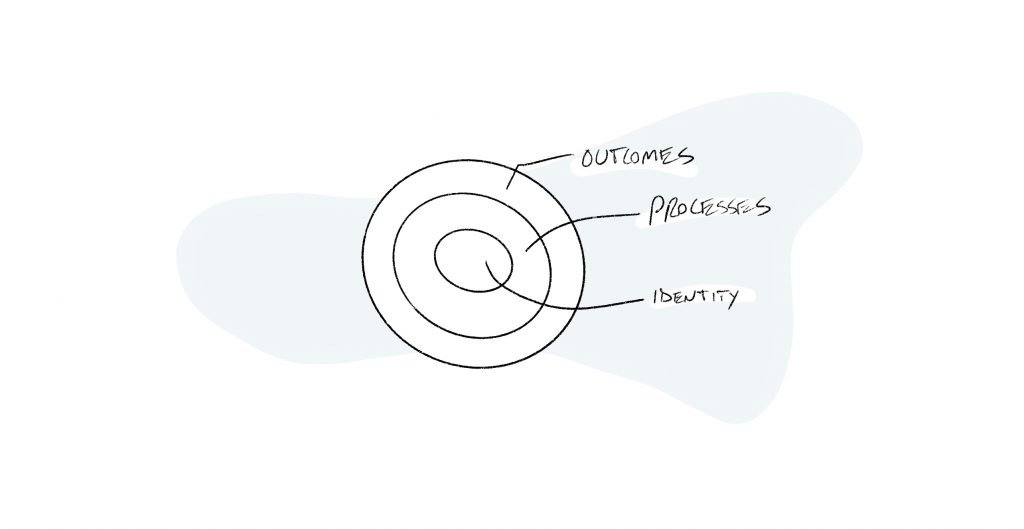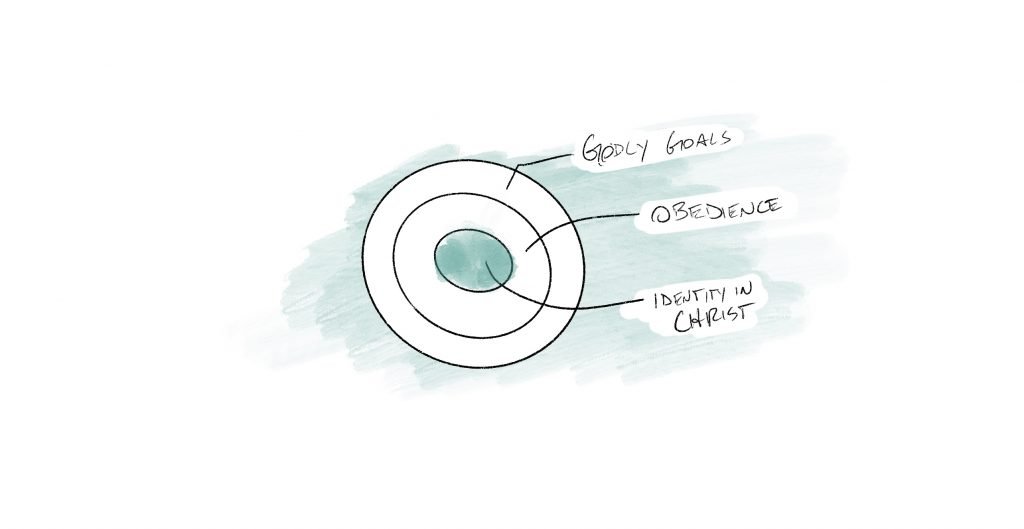What if we are thinking about habits all wrong? That is exactly what James Clear, author of the best-selling book Atomic Habits, argues.
Most of us, when we intend to create a new habit, begin with the outcome in mind. So, we say for example, “I want to be in better shape.” Then we decide on the habit we think will help us to reach that outcome. “I will go to the gym three times a week.” And eventually, if we stick with it long enough, we will get into great shape and become the type of person who is in great shape. We think goal leads to habit which eventually leads to identity change. But, Clear shows that this approach is precisely backward. Habits that stick, and therefore take us to our goals, are actually the result of how we think about who we are. He writes,
“The key to building lasting habits is focusing on creating a new identity first. Your current behaviors are simply a reflection of your current identity. What you do now is a mirror image of the type of person you believe that you are (either consciously or subconsciously).”
Clear is not suggesting that we embrace positive confession; boldly giving ourselves a “You are a warrior!” pep-talks in the mirror. No, in fact, it doesn’t matter how many times I tell myself I am Yo-Yo Ma, I’m still not going to be able to play the Cello. But if I shift my thinking to consider what the processes are that a world-class cellist embraces, and then tell myself, “I am the type of person to dedicates three hours to practicing my instrument each day,” you will find that your behavior actually follows who you think you are.

And as we prove to ourselves through little successes in habit-keeping that we indeed are that type of person, that identity and its attendant habits become further ingrained in us. We forget about the goal and embrace the climb because it’s who we are. Then, suddenly one day we turn around to realize that the outcome we dreamt of has been achieved or even exceeded. You’re a virtuouso, a top-tier athlete, or a successful businessman.
Clear’s point is that you don’t reach those types of goals by focussing really hard on the outcome, you reach them by building identity-based habits.
Who Are You?
When I talk to people who have read Atomic Habits, this is one of the revolutionary points most of them cite as having learned from the book. (It’s a great book, by the way.) But as I was reading about identity-based habits, I couldn’t help but be reminded of Solomon’s words from Ecclesiastes 1:9, “there is nothing new under the sun.” And indeed, the idea that behavior flows from identity is precisely what God’s Word has always taught us.
We live like who we think we are.
Believers in Jesus Christ are not told that when we overcome sin consistently, then we can consider yourself dead to it. No, we are called first to “consider yourselves to be dead to sin, but alive to God in Christ Jesus” (Romans 6:11). If we think of ourselves as no-good sinners who are powerless to overcome sin’s temptations, then we will give in to every lust. But if we believe what is true about us, that we are actually dead to sin and alive in God, we will find ourselves fighting temptation and winning in God’s power. We are then operating out of our identity.

If you really believe that your identity is in Christ, that will result in behavior and habits that befit a child of God. You will subtly be asking yourself how does a person live who has been crucified with Christ, have Christ dwelling in them, and lives by faith in Jesus Who loves him? What are the habits, practices, and daily routines of a Christian who is cognizant of the truth that “therefore if any man is in Christ, he is a new creature; the old things passed away; behold, new things have come” (2 Corinthians 5:17)?
It is who you are that fuels what you do. And for believers the key is to recognize that who we are is in Christ. When we take hold of that truth by faith, amazing things begin to happen.
It’s Not About Arriving
Another thing Clear gets right is that a focus on “results,” far from being the key to growth, is actually detrimental to habit-building. And what’s more, even if you do reach your goal, what then? Goals are inherently terminal. What happens after you hit your goal weight? What happens after you get that dream job? What happens after your kids are raised? Or what happens after you overcome that persistent sin? You’ve reached your goal, now what?
That’s not knocking the idea of having goals. It’s just that we often ask our goals to bear too much weight. Goals are excellent for giving us a vision, and something to aim at. But in and of themselves they are poor suppliers of the long-term motivation needed to reach them.

Part of living out of your identity is recognizing that you don’t ever reach a point where you stop being who you are. You will never arrive in a place where you can just coast, that’s true of dieting and it’s true of your spiritual life as well. You will never reach a point where your sanctification is perfectly dialed-in and you no longer have to keep struggling for holiness—at least not in this life. But understanding this truth is actually very freeing.
It’s not about arriving, it’s about being and becoming. It’s about being fruitful in good works because “we are his workmanship, created in Christ Jesus for good works.” (Ephesians 2:10). It’s about acknowledging that God has given you what you need to be obedient day after day, “For God gave us a spirit not of fear but of power and love and self-control.” (2 Timothy 1:7).
It’s just day-by-day walking by faith in Christ, believing that what He has said about you is true and in his strength living out who we are in Jesus Christ. When we let our identity fuel our habits, we will find ourselves putting off old habits and putting on new ones.


Great article